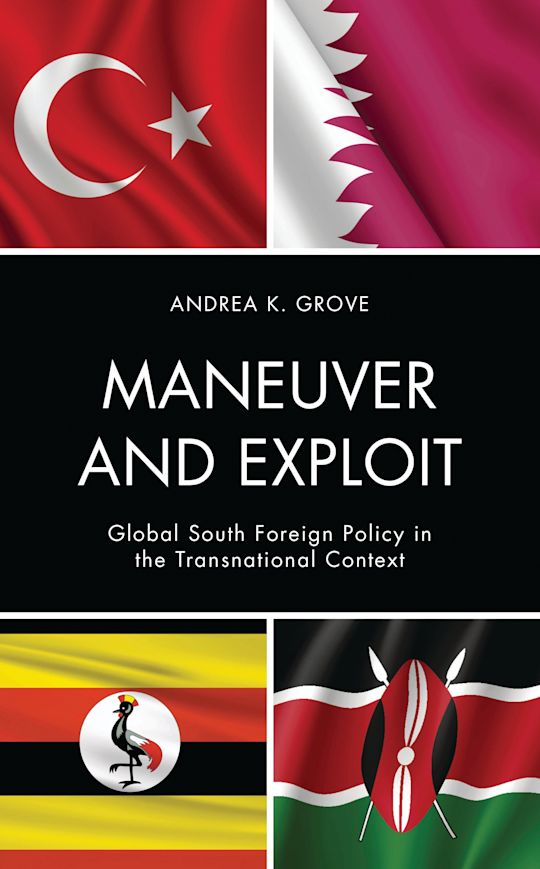- Home
- ACADEMIC
- Politics & International Relations
- Introduction to International Relations
- Maneuver and Exploit
Maneuver and Exploit
Global South Foreign Policy in the Transnational Context
Maneuver and Exploit
Global South Foreign Policy in the Transnational Context
This product is usually dispatched within 2-4 weeks
- Delivery and returns info
-
Flat rate of $10.00 for shipping anywhere in Australia
You must sign in to add this item to your wishlist. Please sign in or create an account
Description
Why do leaders make foreign policy decisions that often appear irrational or engage in major reversals of previous policy to the extent that observers wonder at their intentions? How are leaders in the Global South (GS), the majority of which should lack much influence in international politics, sometimes are able to defy external pressure or even get powerful states to do their bidding? While some analysts focus on domestic politics or on external factors to explain shifts in foreign policy, the GS decision model emphasizes that observers forgo useful insights in applying these categories to occurrences that are in fact transnational-when the domestic and foreign cannot be disentangled. Drawing on the poliheuristic decision making model, which makes political survival paramount, Andrea K. Grove argues that leaders weigh political considerations and eliminate options that do not fit with the most pressing concerns for these leaders: legitimacy and regime security. Application of this model to the cases of Uganda, Kenya, Qatar, and Turkey not only improves understanding of foreign policy pathways but reveals ways in which leaders of developing states can manipulate their tough environments to serve their interests. They can sometimes exploit more powerful countries to raise their state's profile beyond what is warranted by objective measures.
Table of Contents
Chapter 1: Global South Foreign Policy Analysis
Chapter 2: Uganda
Chapter 3: Kenya
Chapter 4: Qatar
Chapter 5: Türkiye
Conclusion
Product details
| Published | 29 Feb 2024 |
|---|---|
| Format | Hardback |
| Edition | 1st |
| Extent | 176 |
| ISBN | 9781666925371 |
| Imprint | Lexington Books |
| Illustrations | 9 Tables |
| Dimensions | 238 x 158 mm |
| Publisher | Bloomsbury Publishing |
About the contributors
Reviews
-
Grove's analysis is persuasive, and the book successfully makes crucial points for policy-makers and scholars alike … This is a refreshing intervention in light of how growing uncertainty in international relations seems to have triggered a counter-intuitive nostalgia for overly simplistic theories.
International Affairs
-
“Grove contends that we need a new framework to study and understand foreign policymaking by leaders in the Global South and illustrates this argument with rich empirical evidence from Uganda, Kenya, Qatar, and Turkey. This book will be useful to political scientists, Global South specialists, international development scholars, and practitioners - and is particularly useful for anyone interested in foreign policy analysis regardless of domain.”
Corina Lacatus, Queen Mary University of London
-
“A topical and innovative study which highlights how comparative insights from the Global South, and the role of transnational interests and identities in foreign policy decision-making in particular, can advance theorizing in Foreign Policy Analysis.”
Klaus Brummer, Catholic University of Eichstätt-Ingolstadt, Germany



































